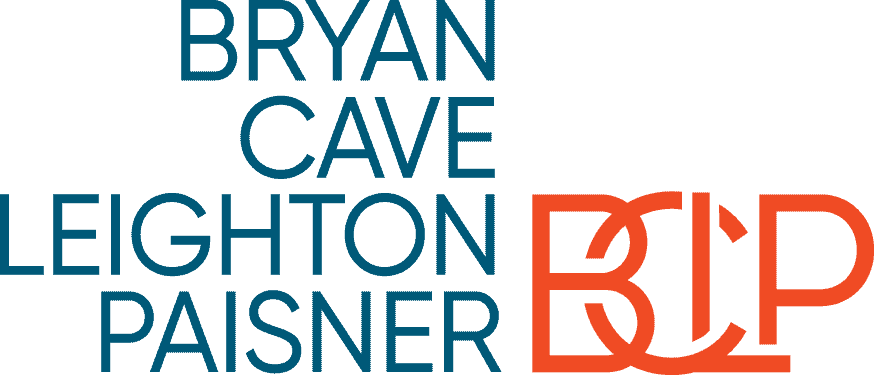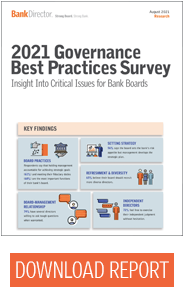
What Directors Think About Diversity, Independence and Credible Challenge
Brought to you by Bryan Cave Leighton Paisner

 Building a diverse board -as defined by gender, race and ethnicity – is a controversial issue in many corporate boardrooms today, banks included. An increasing number of large institutional investors and stock exchanges like the Nasdaq Stock Market are pushing for it, and a small but growing number of states either mandate it or are instituting disclosure requirements.
Building a diverse board -as defined by gender, race and ethnicity – is a controversial issue in many corporate boardrooms today, banks included. An increasing number of large institutional investors and stock exchanges like the Nasdaq Stock Market are pushing for it, and a small but growing number of states either mandate it or are instituting disclosure requirements.
But not everyone is convinced that greater diversity inherently leads to better governance, as illustrated by results of Bank Director’s 2021 Governance Best Practices Survey. Fifty-nine percent of the respondents agreed that diversity as defined by race, gender and ethnicity improves the performance of a corporate board. However, 36% agreed with statement but said the impact was overrated, and 5% disagreed that greater diversity improves performance.
James J. McAlpin Jr., a partner at Bryan Cave Leighton Paisner LLP and leader of the firm’s banking practice group, is a strong proponent of board room diversity. “I have experienced the power of diversity on a bank board of which I am a member,” he says. “We have gone from a board of eight men and one woman three years ago to now a majority female board. There is a difference resulting from that positive transformation. Our board is probably more risk averse that it used to be. We seem to be better prepared as a group for meetings. And as a group we ask more probing questions.”
Sponsored by Bryan Cave, the survey polled 217 directors and chief executives at banks under $50 billion in assets in February and March of 2021. The majority of the respondents were independent board members. Almost half of the participants represented banks with $1 billion to $10 billion in assets.
Diversity is just one of many issues covered in this year’s survey. The list includes the practice of credible challenge, the desire for collegiality versus the freedom to disagree, board assessments, the board’s role in strategic planning and CEO performance evaluations. The survey results have been divided into five modules: board practices, the board/management relationship, strategic planning, board refreshment and diversity, and the role of the independent director.
The white paper also includes the insights of two experienced directors who helped us interpret the results: David. L. Porteous, the lead director at Huntington Bancshares, a $175 billion asset bank headquartered in Columbus, Ohio; and C. Dallas Kayser, the independent chair at City Holding Co., a $5.9 billion bank located in Charleston, West Virginia.
Ninety-nine percent of the survey respondents said that personal integrity was the most important attribute of an independent director, followed by the ability to exercise sound judgment at 96% and accountability at 94%.
“Regardless the size of the bank, the role of the independent director is pretty much the same,” says Porteous, who has served on the Huntington board since 2003, and as lead director since 2007. “There has to be a level of commitment, and that commitment has to be to your fellow directors. It has to be to the leadership of the organization, it has to be to the shareholders, to the community and to the regulators. If there comes a time when you just can’t dedicate that level of commitment, you should probably step down.”
To read more about these critical board issues, read the white paper.
To view the full results of the survey, click here.



